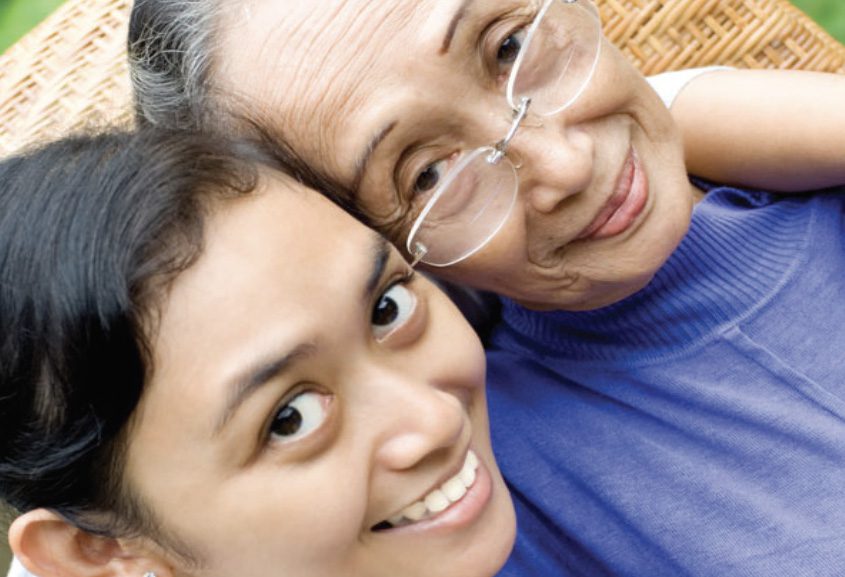Who are Caregivers?
Formal caregivers are volunteers or paid care providers associated with a service system. Informal caregivers are family, friends, neighbors or church members who provide unpaid care out of love, respect, obligation or friendship to a disabled person. These people far outnumber formal caregivers, and without them, this country would have a difficult time formally funding the caregiving needs of a growing number of disabled recipients.
Up to 20% of the total population is providing part-time or full-time care. The typical informal caregiver is a daughter, age 46, with a full-time job, providing an average of 18 hours per week to one or more of her parents.
Among adults aged 20 to 75, providing informal care to a family or friend of any age, 38% care for aging parents and 11% care for their spouse. About two-thirds of those caregivers for people over age 50 are employed fulltime or part-time. Two-thirds of those, about 45% of working caregivers, report having to rearrange their work schedule, decrease their hours, or take an unpaid leave in order to meet their caregiving responsibilities.
A Caregiver is not a Caretaker
A caregiver:
- gives freely
- honors personal boundaries
- does not judge
- takes positive action
- allows the receiver to activate his or her own capabilities
- respectfully waits to be asked for help
- practices good self-care to be of better service to others
- focuses on the solution, not the problem
(Source: “Codependency: Caretaking vs. Caregiving” by Elizabeth Kupferman, RN, LMHC, LPC www.expressivecounseling.com)
 Caregiving can be an important part of any level of the continuum of care, from informal family care in the home to professional end of life care. Unfortunately, family caregivers do not often receive training in how to deliver complicated care, nor do they take advantage of resources and support services that can help them be more effective partners with their loved ones… …and if the care recipient is visually impaired, that can add considerably to the responsibility
Caregiving can be an important part of any level of the continuum of care, from informal family care in the home to professional end of life care. Unfortunately, family caregivers do not often receive training in how to deliver complicated care, nor do they take advantage of resources and support services that can help them be more effective partners with their loved ones… …and if the care recipient is visually impaired, that can add considerably to the responsibility
Caregiving can be an important part of any level of the continuum of care, from informal family care in the home to professional end of life care. Unfortunately, family caregivers do not often receive training in how to deliver complicated care, nor do they take advantage of resources and support services that can help them be more effective partners with their loved ones…
…and if the care recipient is visually impaired, that can add considerably to the responsibility.
